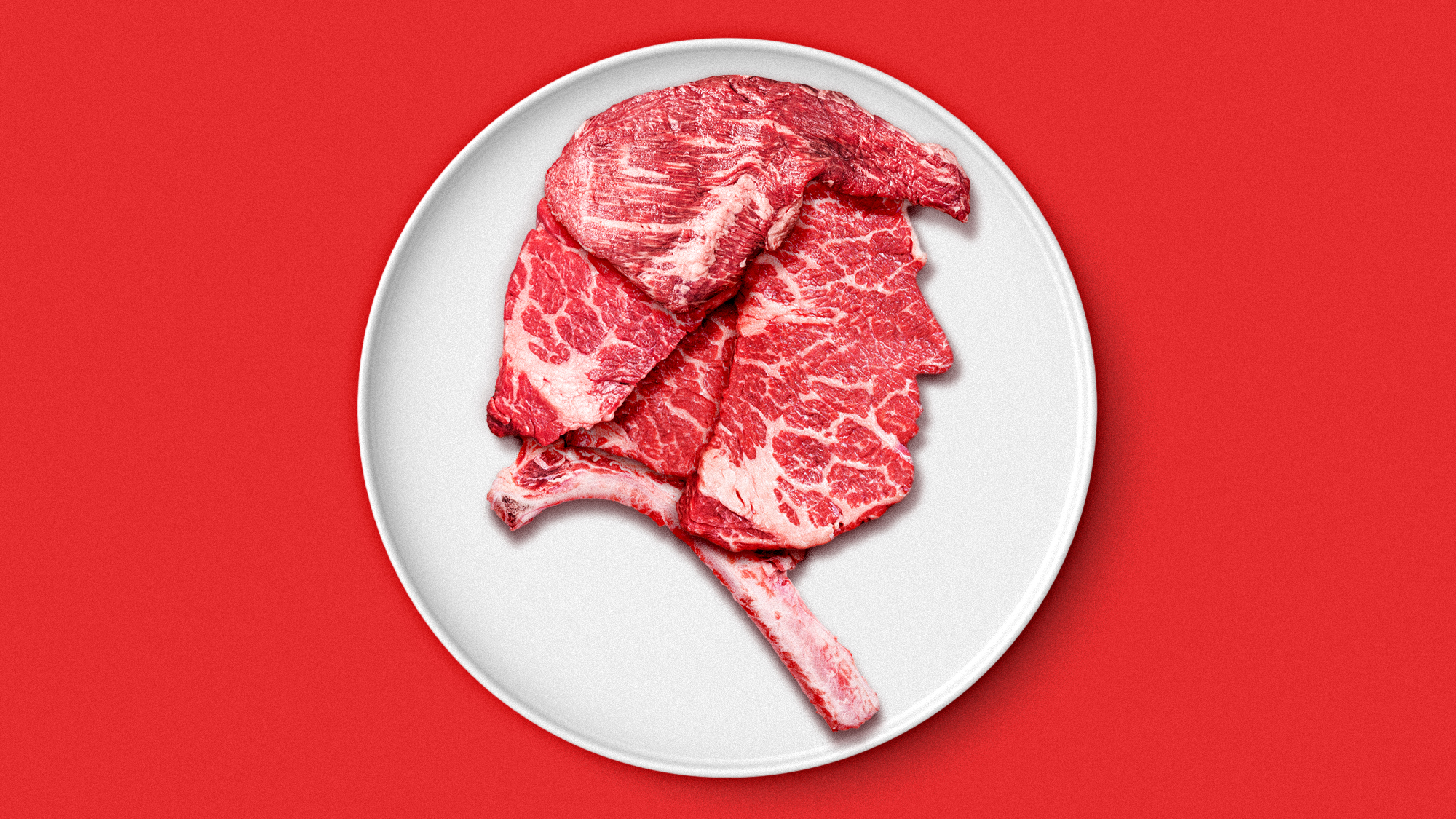British wages are being squeezed - here’s why
Report says former Labour heartlands in the north of England have been hit hardest

A free daily email with the biggest news stories of the day – and the best features from TheWeek.com
You are now subscribed
Your newsletter sign-up was successful
The former Labour heartlands in the north of England that switched decisively to support the Tories in the December election have been hit disproportionately by the long squeeze on wages, according to a leading think-tank.
The Resolution Foundation says earnings in traditionally Labour areas are lower now than they were in 2010, once the increased cost of living is taken into account, reports The Guardian.
The so-called “red wall” constituencies have experienced a 2.1% reduction in real wages over the past decade – but the UK as a whole has also seen wages shrink, by 1.5% once inflation is allowed for.
The Week
Escape your echo chamber. Get the facts behind the news, plus analysis from multiple perspectives.

Sign up for The Week's Free Newsletters
From our morning news briefing to a weekly Good News Newsletter, get the best of The Week delivered directly to your inbox.
From our morning news briefing to a weekly Good News Newsletter, get the best of The Week delivered directly to your inbox.
In fact, the UK is in the middle of the “longest period of wage stagnation since the Napoleonic wars”, claims the New Statesman. So what lies behind this pay squeeze?
The financial crisis
The UK went into an economic downturn after the 2007-2008 global financial crisis. You don’t need to be an economist to understand that this would have an impact on wage levels.
The economy has slowly recovered since that time, yet wages are still not rising as fast as the cost of the goods and services that earners buy with them. There are other reasons for this, some of them knock-on effects of the global crisis.
A free daily email with the biggest news stories of the day – and the best features from TheWeek.com
Productivity
The UK’s productivity – a measure of economic activity compared to the hours workers put in – is embarrassingly low for a major economy, and has been for some time. One of the main causes of this is a lack of investment.
To keep productivity high, companies need to be putting money in to modernise equipment and train staff. When the financial crisis hit, however, British firms cancelled plans to invest – and they are still not doing so sufficiently, despite government encouragement.
The BBC says this lack of investment has “punched a hole in economic performance”. Without it, firms struggle to remain profitable – and as a result, do not increase wages. Last year, the Resolution Foundation cited poor productivity as the reason for wage stagnation, The Guardian reported.
Austerity
The Living Wage Commission, a committee of business and trade union figures, concluded in 2014 that one driver of wage stagnation was “the cutting back on government spending”. With lower benefits, people had less money to spend on goods and services, meaning lower profits for firms – and no wage increases for employees, said the commission.
It also argued that austerity measures had reduced the benefits employees received from employers, such as insurance and other services, another form of wage stagnation.
–––––––––––––––––––––––––––––––For a round-up of the most important stories from around the world - and a concise, refreshing and balanced take on the week’s news agenda - try The Week magazine. Start your trial subscription today –––––––––––––––––––––––––––––––
Declining unions
In 2012, the BBC reported that trade union membership had dropped below six million for the first time since the 1940s, after a 1970s peak when unions in the UK had more than 12 million members.
The figure has risen above six million since then, but as The Guardian said in 2017, the unions are still nowhere near as powerful as they once were. Some analysts say the loss of bargaining power is one reason why wages have not risen over the past decade, says the BBC.
Zero-hours contracts
In the last ten years, non-traditional forms of employment including part-time and zero-hours jobs have become more common. The New Statesman notes that 26.3% of employment is now part-time, 14.8% is self-employment and 5.6% is temporary.
These flexible forms of work have contributed to the record employment statistics – but they also represent a diminution of bargaining power for workers. Without the collective clout enjoyed by unionised workers it is hard for people to push for pay increases.
Partly as a result of this, wage inequality is now on the increase in the UK, says the New Statesman. In 2018, the poorest fifth of the population saw their income shrink by 1.6% while the richest fifth enjoyed a 4.7% rise, according to the Office for National Statistics.
-
 Political cartoons for February 15
Political cartoons for February 15Cartoons Sunday's political cartoons include political ventriloquism, Europe in the middle, and more
-
 The broken water companies failing England and Wales
The broken water companies failing England and WalesExplainer With rising bills, deteriorating river health and a lack of investment, regulators face an uphill battle to stabilise the industry
-
 A thrilling foodie city in northern Japan
A thrilling foodie city in northern JapanThe Week Recommends The food scene here is ‘unspoilt’ and ‘fun’
-
 Will Trump’s 10% credit card rate limit actually help consumers?
Will Trump’s 10% credit card rate limit actually help consumers?Today's Big Question Banks say they would pull back on credit
-
 What will the US economy look like in 2026?
What will the US economy look like in 2026?Today’s Big Question Wall Street is bullish, but uncertain
-
 Is $140,000 the real poverty line?
Is $140,000 the real poverty line?Feature Financial hardship is wearing Americans down, and the break-even point for many families keeps rising
-
 Fast food is no longer affordable for low-income Americans
Fast food is no longer affordable for low-income AmericansThe explainer Cheap meals are getting farther out of reach
-
 Why has America’s economy gone K-shaped?
Why has America’s economy gone K-shaped?Today's Big Question The rich are doing well. Everybody else is scrimping.
-
 From candy to costumes, inflation is spooking consumers on Halloween this year
From candy to costumes, inflation is spooking consumers on Halloween this yearIn the Spotlight Both candy and costumes have jumped significantly in price
-
 French finances: what’s behind country’s debt problem?
French finances: what’s behind country’s debt problem?The Explainer Political paralysis has led to higher borrowing costs and blocked urgent deficit-reducing reforms to social protection
-
 Why are beef prices rising? And how is politics involved?
Why are beef prices rising? And how is politics involved?Today's Big Question Drought, tariffs and consumer demand all play a role